The EINUB report that contains serious charges against Burundi government has triggered protests in the streets of the capital. Is the reaction a result of dignity or fear?
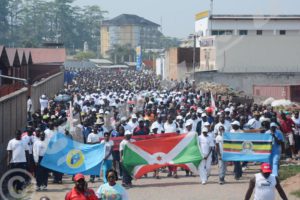
The population of Bujumbura participated in demonstrations against the EINUB report.
The report of the United Nations Independent investigation on Burundi (EINUB), which deals with violations and abuses of human rights committed from 15 April 2015 to 30 June 2016, puts Burundi’s government in a sticky situation. The UN experts said, “serious violations of human rights have been and are committed mostly by government officials and those connected to them.” These serious violations, they say, are systematic and constant and impunity is rampant. “Some of these serious violations of human rights constitute crimes against humanity. For this, the report calls for independent international judicial proceedings to bring the alleged perpetrators to justice.”
The Government rejected the report it described as “biased”. According to Willy Nyamitwe, Senior Communication Advisor of President Nkurunziza, it is a “report based on cabaret gossips.” He also denounced “bad intentions against Burundi.” And thus, he has already rejected the draft resolution that may be adopted in Geneva against Burundi at the 33rd session of the UN Council of Human Rights.
The population of Bujumbura has been demonstrating, since last week, against the report. Jean-Luc Ndikumwenayo, a Tutsi and symbol of the demonstrations claims to protest just to tell the world that there is no genocide taking place in Burundi.
Resorting to Chapter 7
In the wake of this 33th session of the UN Council of Human Rights, the European Union has initiated a draft resolution on Burundi. If it is adopted, this Friday, September 30, 2016, it provides, among other things, for the establishment of a thorough investigation into human rights violations for a period of one year from April 2015.
The report also calls for the identification of alleged perpetrators and their responsibilities for the crimes committed.
Part of the Burundian civil society welcomed the report of independent experts. It supports their recommendations for establishing a commission of inquiry and having recourse to Chapter VII of the UN Charter for “Action With Respect to Threats to the Peace, Breaches of the Peace, and Acts of Aggression” which allows member states to use all possible means, including economic sanctions and military action, to enforce a U.N. resolution if the government continues to reject the Resolution 2303 and if violations of human rights continue. “We call on the international community to remain focused on the matter and appeal to it to support the preliminary investigation opened by the prosecutor of the International Criminal Court (ICC),” said Armel Niyongere, president of ACAT-Burundi.
Human Rights Watch has also called on all States to support the resolution of Human Rights in favor of a commission of inquiry into the crimes committed in Burundi since April 2015. “HRW fully supports this proposal, since the Burundian judicial system failed to make a credible justice, “said John Fisher, advocacy director in Geneva.
Analysis
The call to demonstrate against the EINUB report is a self-recognition strategy, but which may not have any effect outside. The best thing is not to attack the reports, which, though biased they may be, according to Bujumbura, reflect some reality on the current governance. Protesting or trying to manipulate the international community will not allow the power to undo the image reflected in these reports. Such ongoing protests may, however, suggest a fear of the power about the decisions of the international community, despite the displayed assurance.
Asking people to demonstrate is a kind of appeal to a deus ex machina against international pressure. It is impossible that the EINUB modifies its report because people, no matter how many they may be, have demonstrated against it. “We will protest until this report is amended,” protesters sometimes chanted.
This local pressure will certainly have repercussions, but not those which protesters expect. Because so far the strategy of the power to reject the reports and pretend to be the victim does not seem to have convinced the international community.
What about Chapter 7?
Chapter 7 of the UN Charter creates the framework in which the Security Council may take coercive measures. It allows the Council to determine “the existence of a threat against peace, breach of peace or act of aggression” and to make recommendations or to resort to military or non-military action “to maintain or restore international peace and security.”
In addition to the complete or partial rupture of economic and diplomatic relations… the board may undertake, by air, maritime or land forces, any necessary action to maintain or restore peace and international security.

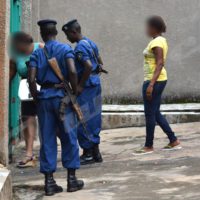
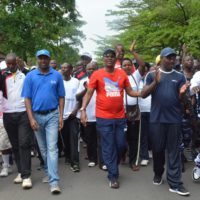
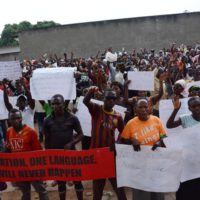
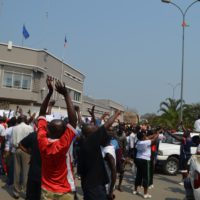













 IWACU Open Data
IWACU Open Data

